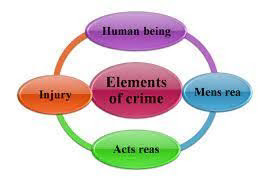UNIT - II
3. Briefly discuss the provisions of TRIPS Agreement on Patents.
Answer:
Introduction:
The word TRIPS stands for Trade-Related Aspects of Intellectual Property Rights.
The TRIPS Agreement establishes minimum standards for various forms of intellectual property regulation as applied to nationals of other World Trade Organization (WTO) Members.
Here are the key provisions on patents under the TRIPS Agreement:
Patentable Subject Matter (Article 27):
TRIPS mandates that patents must be available for any inventions, whether products or processes, in all fields of technology, provided they are new, involve an inventive step, and are capable of industrial application.
It prohibits discrimination based on the place of invention, the field of technology, and whether products are imported or locally produced.
However, it allows exclusions from patentability for inventions contrary to public order or morality, diagnostic, therapeutic, and surgical methods for treating humans or animals, and certain plant and animal inventions.
Rights Conferred (Article 28):
Patent owners are given exclusive rights to prevent others from making, using, offering for sale, selling, or importing the patented product or process without their consent.
For processes, the rights extend to products obtained directly by that process.
Exceptions to Rights Conferred (Article 30):
TRIPS allows for limited exceptions to the exclusive rights conferred by a patent, provided that such exceptions do not unreasonably conflict with the normal exploitation of the patent and do not unreasonably prejudice (पूर्वाग्रह) the legitimate (विधिसंगत) interests of the patent owner, taking into account the legitimate interests of third parties.
Compulsory Licensing (Article 31):
Compulsory licenses can be granted under specific conditions, such as national emergencies, public non-commercial use, and antitrust remedies.
These licenses must be considered on a case-by-case basis, the proposed user must have tried to obtain authorization from the patent holder on reasonable commercial terms, and adequate remuneration must be paid to the patent holder.
Term of Protection (Article 33):
The duration of patent protection must not end before the expiration of a period of 20 years counted from the filing date.
Disclosure Requirements (Article 29):
Patent applicants must disclose the invention in a manner sufficiently clear and complete for it to be carried out by a person skilled in the art. Members may require the applicant to provide information on corresponding foreign applications and grants.
Patent Enforcement (Articles 41-61):
TRIPS outlines general principles for enforcement, including fair and equitable procedures, judicial review, and remedies. It emphasizes the importance of enforcement mechanisms to ensure that patent rights are effective.
Public Health and Pharmaceuticals (Doha Declaration):
The 2001 Doha Declaration on TRIPS and Public Health clarifies that the TRIPS Agreement should be interpreted in a way that supports public health by promoting access to existing medicines and the creation of new medicines. It provides flexibility for developing countries to issue compulsory licenses and adopt other measures to protect public health.
Conclusion:
The TRIPS Agreement thus balances the interests of patent holders with the public interest, especially concerning access to essential medicines and the promotion of technological innovation.








